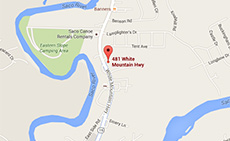Energy Efficient Tax Credits
The fiscal cliff bill also known as the American Taxpayer Relief Act of 2012 extended certain tax credits for energy efficient purchases made in 2012 and 2013. Due to this late change by Congress the IRS is currently updating their Form 5695 and e-file computer systems. They recently announced they do not anticipate being able to accept returns with this credit until late February or early March.
The most common credit is for improving the energy efficiency of your principal residence. The items considered for this credit included purchases made for biomass stoves, HVAC equipment, insulation, roofs, water heaters, windows and doors, and other improvements to the envelope or shell of the home. A building envelope is generally defined as any insulation or system that is designed to prevent heat loss or gain. The most common is a metal roof with certain pigmented coatings or asphalt roof with certain cooling granules. This credit is generally 10% of the purchase price and in some cases labor for installation. The annual credit limit for windows is $200, $150 for a furnace or boiler, and $300 for most other items. There is a lifetime maximum credit of $500 and is a nonrefundable credit with any unused amount being carried forward to subsequent years.
Another credit that is becoming more popular is the use of alternative heating and cooling systems. These include solar energy systems, wind turbines, and geothermal heat pumps. These tax breaks do not expire until December 31, 2016. The credit is generally 30% of the cost of the eligible property and is also nonrefundable. In general terms if you use the sun, the wind, or the ground to provide electricity or to heat your home you could be eligible for the credit.
A question I often get asked is the use of energy efficient appliances. Currently there is no income tax credit in place for use of these appliances in your home.
More detailed information on the available credits may be found at www.energystar.gov.
Please remember these are general rules and you should always speak with your trusted advisors about your particular situation.
Brian is a CPA at Gamwell Caputo Kelsch & Co., PLLC in Conway, NH and can be reached at 603-447-3356. Brian welcomes any article feedback or questions for future article consideration.


